Space
Sign up for our newsletter
We summarize the week's scientific breakthroughs every Thursday.
-
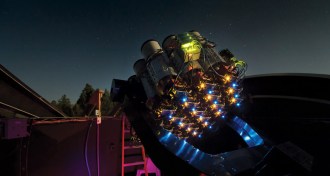 Astronomy
AstronomyStar-starved galaxies fill the cosmos
Astronomers are detecting hundreds of galaxies that are almost devoid of stars. There are at least four theories on how they got that way.
-
 Science & Society
Science & Society‘The Glass Universe’ celebrates astronomy’s unsung heroines
In “The Glass Universe,” science writer Dava Sobel shines a light on the women at the Harvard Observatory who mapped the stars.
-
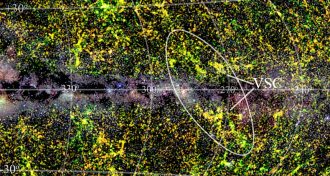 Astronomy
AstronomyGiant gathering of galaxies discovered hiding on far side of Milky Way
An uncharted supercluster of galaxies lurks about 800 million light-years away, partly hidden by the Milky Way.
-
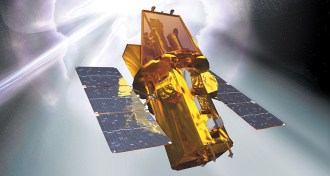 Astronomy
AstronomyMysterious radio signals pack power and brilliance
The brightest fast radio burst has been detected, while another team reveals a previous burst might have carried gamma rays as well as radio waves across space.
-
 Earth
EarthHow a ring of mountains forms inside a crater
Rocks drilled from the Chicxulub crater linked to the demise of the dinosaurs reveal how mountainous peak rings form within large impact craters.
-
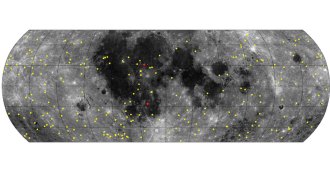 Astronomy
AstronomySurprising number of meteoroids hit moon’s surface
A new analysis of lunar images reveals over 200 new craters and about 47,000 undiscovered “splotches” on the moon.
-
 Astronomy
AstronomyInteractive map reveals hidden details of the Milky Way
Gleamoscope, an interactive map, lets you explore the Milky Way galaxy and the nearby universe in many different electromagnetic frequencies.
-
 Astronomy
AstronomyYoung planets carve rings and spirals in the gas around their suns
New telescope images show rings and spiral arms in disks encircling young stars, suggesting the presence of actively growing planets.
-
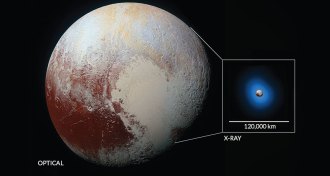 Planetary Science
Planetary ScienceX-ray mystery shrouds Pluto
Chandra telescope detects seven X-ray photons coming from Pluto, suggesting that the solar wind runs into a tail of gas streaming from the dwarf planet.
-
 Astronomy
AstronomyReaders unimpressed by Earth’s newest neighbor
Exoplanet fatigue, runaway fish and more in reader feedback.
-
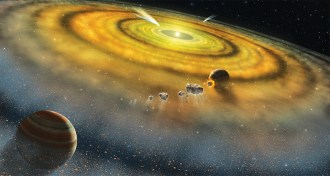 Earth
Earth‘A Most Improbable Journey’ offers scientific take on human history
Walter Alvarez’s “A Most Improbable Journey” gives readers a tour of “Big History,” linking human history to unpredictable cosmic, geologic and biological events.
-
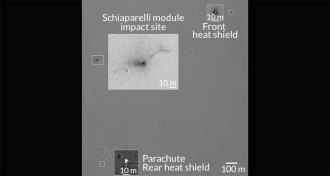 Planetary Science
Planetary ScienceMars lander debris spotted
The Mars Reconnaissance Orbiter imaged the impact site of the Schiaparelli Mars lander, missing in action since its October 19 descent.